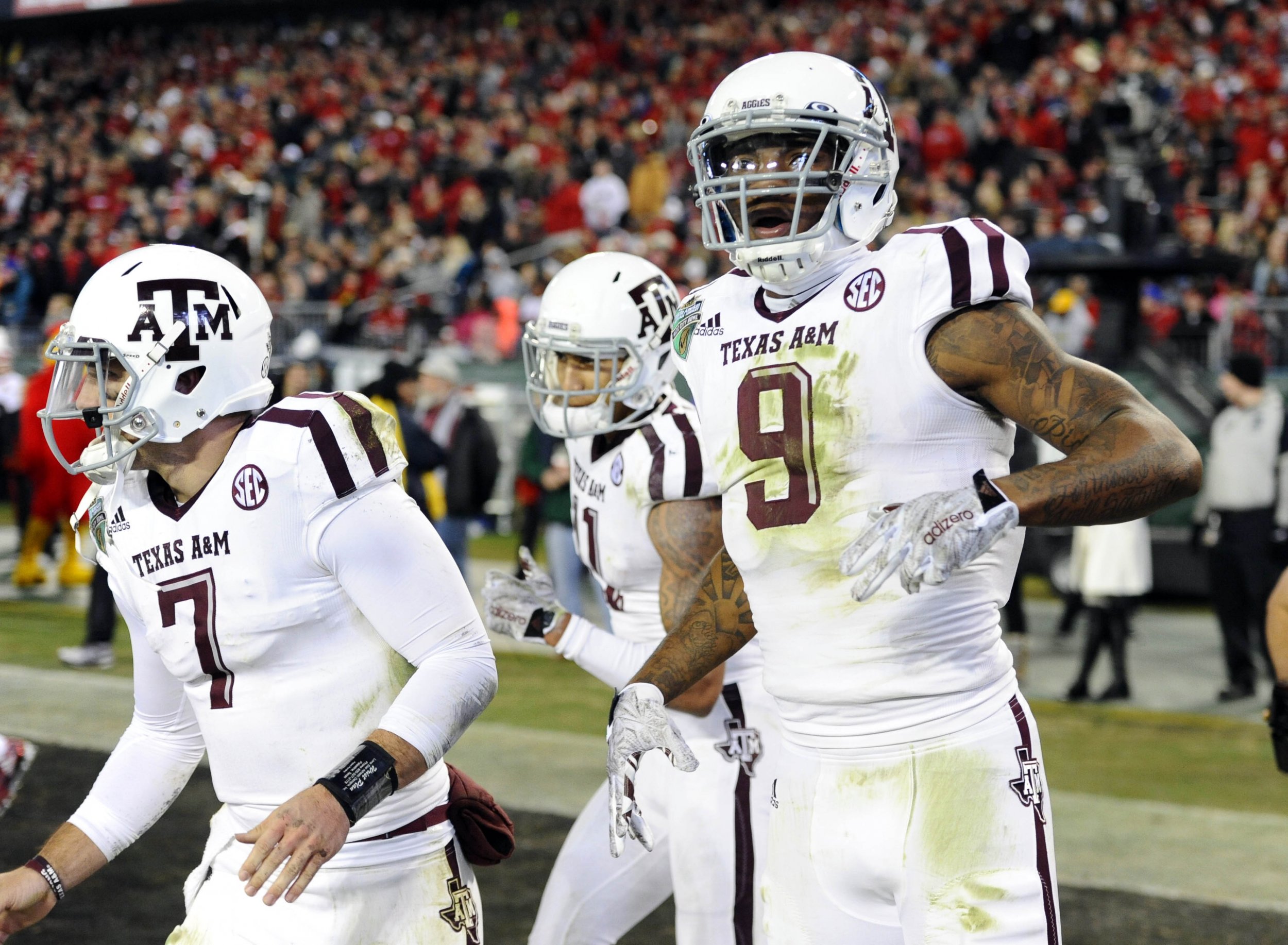
College football recruiting is a long, complicated process full of twists and turns. Coaching staffs do everything they can to convince impressionable high school stars and their families to commit their futures to the program they represent. They treat them to lavish campus visits, show up at their games to support them and, in the case of Michigan coach Jim Harbaugh, fly to their houses and have sleepovers. These gestures usually end in scholarship offers, which are often followed by verbal commitments from teenagers who have just been made to feel special.
On Wednesday, Tate Martell, whom ESPN ranks as one of the top quarterback recruits in the nation, tweeted that he would "reopen" his recruiting after saying in August that he would attend Texas A&M.
After talking with my family about
— Tate Martell (@TheTateMartell) May 5, 2016
what is best for my future, I have
decided to reopen my recruiting
process.
There is nothing unusual or duplicitous about this. A verbal commitment is not really a "commitment"; players like Martell change their minds all the time, and nothing is official until a letter of intent is signed. But six minutes later, Texas A&M wide receivers coach Aaron Moorehead posted a tweet about loyalty that many took to be a response to Martell's decision.
I feel sorry for ppl who never understand loyalty. I can't really even vibe with u. At the end of the day trust is _ & everything else is BS
— Aaron Moorehead (@Amo8685) May 5, 2016
To see someone representing a college football program preach loyalty to a high schooler whom the program probably ultimately views as an expendable asset ripe for exploitation did not sit well with Twitter—or with other high school players considering Texas A&M.
Moorehead later claimed that the timing of the tweet was a coincidence and that he was not referring to Martell, but the damage was done. Less than two hours later, top receiver recruit Mannie Netherly announced that he too would be de-committing from Texas A&M, citing the kind of person his then-"future coach" revealed himself to be.
‼️‼️ pic.twitter.com/2g0ee2pRkA
— Mannie Netherly (@yovng_netherly) May 5, 2016
Tyjon Lindsey, another top wide receiver recruit who was considering Texas A&M, then tweeted that he was dropping the school from consideration. "I would like to say thank you to TAMU & fans but due to some tweets subtweeted towards my brother, I will no longer be looking at A&M," he wrote in the tweet, which has since been deleted.
College football programs seek every edge possible while courting recruits, and because the process is so competitive, even the slightest mistake can prove catastrophic. So this was not good. After initially defending himself by tweeting about all the "tough typers" and how "people act like the truth is all the sudden a bad thing," the coach apologized on Thursday morning.
— Aaron Moorehead (@Amo8685) May 5, 2016
The fiasco is only the latest reminder that careless use of social media by college and professional athletes and coaches can cause real damage, not just a temporary PR hit.
Moments before last week's NFL draft, a video of top prospect Laremy Tunsil smoking marijuana out of a gas mask was posted to his own verified Twitter account. Tunsil was thought by many to be the top player in the draft and was expected to be taken within the first few picks. The video caused him to slide all the way to the Miami Dolphins at pick No. 13, where his contract will be worth considerably less money than he would have made if he was chosen where he was projected.
A month earlier, in March, a video made its way onto social media showing Lakers guard Nick Young discussing infidelity; it was secretly shot by teammate D'Angelo Russell. Many of Russell's teammates shunned the rookie point guard for letting a private conversation go public. He was booed by fans, and he may never be able to fully repair his reputation within the league.
The number of social media slipups will only continue to grow. Professional franchises and college programs have undoubtedly gone to great lengths to caution employees about the dangers of social media, but outside of banning its use outright, it's always going to be a problem. Not only has technology made it easier than ever for people to express how they feel both instantly and publicly, but people are also now conditioned to do so.
Often, the consequence is nothing more than some benign criticism that gets flushed out of the news cycle within 48 hours. But other times, as in the case of Moorehead, careers can be at stake. Hopefully for Moorehead, Texas A&M head coach Kevin Sumlin is more forgiving than the recruits he scared away.
Uncommon Knowledge
Newsweek is committed to challenging conventional wisdom and finding connections in the search for common ground.
Newsweek is committed to challenging conventional wisdom and finding connections in the search for common ground.
About the writer
Ryan Bort is a staff writer covering culture for Newsweek. Previously, he was a freelance writer and editor, and his ... Read more
To read how Newsweek uses AI as a newsroom tool, Click here.








